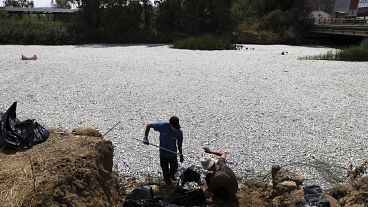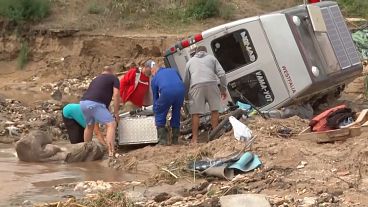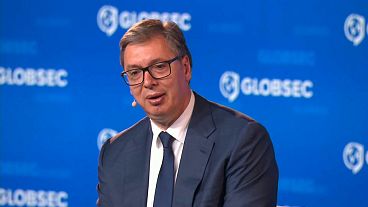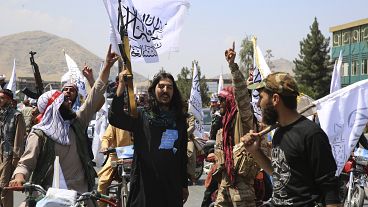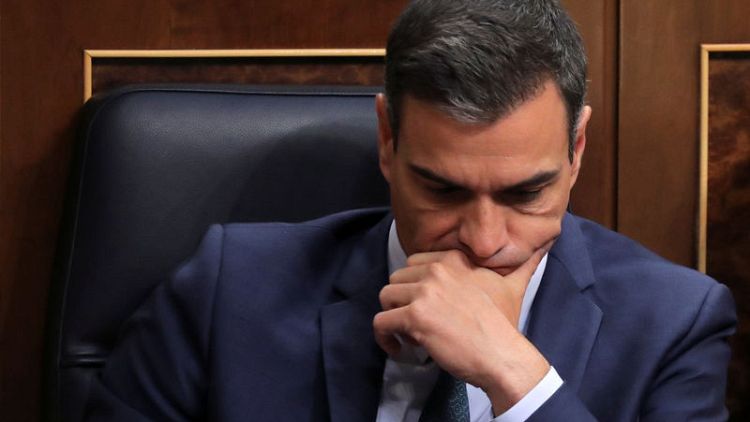By Belén Carreño and Ingrid Melander
MADRID (Reuters) - Spain's parliament rejected Pedro Sanchez's bid to be confirmed as prime minister on Thursday, putting the country on a path to what could be its fourth national election in as many years - unless he succeeds in another attempt.
Sanchez's failure to strike the coalition deal he needed to stay on as prime minister highlighted how tense and fragmented Spain's political landscape has become, and there is no guarantee that a new election would fix that.
The 47-year-old Socialist leader, sometimes nicknamed the "comeback kid" for overcoming a series of setbacks to become prime minister last year, lost a first confirmation vote on Tuesday.
In theory he has until mid-September to win parliament's backing, but that could be a tall order after losing two votes by a considerable margin.
Sanchez received the support of only his own 123 Socialist lawmakers and one from Cantabria on Thursday. Everybody else either abstained or voted against him.
"I want to be Spain's prime minister, but not at any price," Sanchez told lawmakers ahead of the vote, adding that the far-left Unidas Podemos party led by Pablo Iglesias, with whom he had hoped to form a coalition, had made unacceptable demands.
"If in order to become prime minister I need to give up on my principles, if I need to form a government knowing it won't be useful for the country, then it won't be done now."
The Socialists said this month they would give up on trying to make Sanchez prime minister if he failed to secure confirmation in July.
Sanchez said late on Thursday that he was not giving up, however. He did not give any details or say when he might try again to be voted in.
"It's not time to throw the towel in. Mr Iglesias has blocked a progressive government for the second time but that doesn't mean that I will give up. Now we need to reflect," Sanchez told Telecinco.
"We need to sit down with the (other parties) PP, Ciudadanos and Podemos to see how to unblock the situation," he said.
He said he wanted to avoid calling fresh elections, but if he fails again, a new election will be held on Nov. 10.
NEGOTIATE?
Sanchez's Socialists won a snap election in April, but fell short of an absolute majority.
Three months of tense talks marked by constant criticism of the other side and a visible lack of trust between Sanchez and Iglesias do not bode well for any further attempts.
The two men exchanged angry words in parliament this week, but Iglesias on Thursday had urged Sanchez to give coalition talks another try.
"I'm reaching out again: Don't take Spain to elections, negotiate with us with respect," Iglesias told Sanchez in parliament ahead of the vote.
Sanchez could be seen shaking his head as Iglesias spelled out his conditions.
The negotiations became deadlocked on the question of what role and what power Podemos would have in a new government. Each side accused the other of negotiating in bad faith.
Smaller parties harshly criticised both parties.
Gabriel Rufian, a member of parliament for the left-wing ERC Catalan party, said the Socialists and Podemos could end up ushering the far-right Vox party under Santiago Abascal into government.
"What do they think would happen with new elections on Nov. 10? Do they want Abascal as defence minister?" he said.
Sanchez's election win in April spelled hope for social democrats in Europe and gave him a role in European Union talks, but his troubles at home could hamper those ambitions as well.
(Reporting by Andrei Khalip, Jose Elias Rodriguez, Belen Carreno, Emma Pinedo, Sam Edwards, Sarah Dagher; writing by Ingrid Melander; editing by Kevin Liffey and Sonya Hepinstall)

